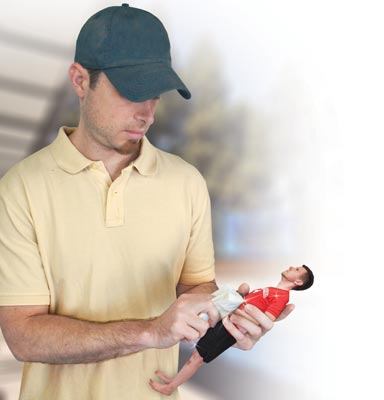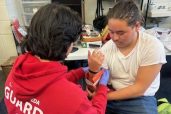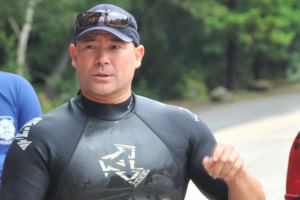The many available first aid, CPR-AED, oxygen administration, emergency response and specialty venue lifeguard training courses are obvious examples of advanced training you can provide.
Different field experiences also can boost guards’ job knowledge and skills. Participation in these professional experiences helps develop their leadership capabilities as well.
Field experiences place them in actual lifeguard and/or rescue-related venues where, under supervision and the guidance of trained emergency response personnel, they go through scenarios as true to life as possible. Having a field experience makes text learning and peer group practice real.
Lifeguards see training course content in action. Because lifeguard training, even for certified guards, is ongoing, they benefit from continual performance feedback, as well as post-experience discussions.
A field experience can occur at your pool or may involve a visit to another facility. Field experiences are planned and carried out in addition to duty or in-service training hours. Because these are enrichment activities, field experiences usually are held once a season or every six months.
Lifeguards new to a program and/or facility can particularly benefit from field experiences at your own facility. This is particularly true for those being rotated into a new part of your facility — for example, from a play area for young children to the wave pool. The opportunity to view working situations and conditions unique to a venue, station or team can prove invaluable to lifeguards when they assume their new job roles. Even experienced guards can benefit from viewing performance from a different, out of the immediate action, point of reference.
Everyone can gain from expanding knowledge of risk management and emergency response at an unfamiliar aquatics facility, ambulance company or hospital emergency department. Particularly valuable is the after-experience discussion. Asking participants to discuss their observations and experiences will clarify key aspects. This discussion also will give you the chance to relate the experience to specific
requirements and commonalities of guards’ job responsibilities.
Typical field experiences might include:
Provide lifeguard assistance during an open swim. Any surveillance should be in addition to surveillance provided by guards on the job that day. Assistance tasks might include orientations for new patrons, enforcement of pool rules, equipment management, duplication of safety checks and water chemistry analysis, and assistance during rescue efforts.
Focus this assistance by telling participants what to look for, individuals to model and operations to specifically observe. Focus points might include safety, task efficiency, public relations, time on task, professionalism or situational appropriateness. In no way should a field-experience lifeguard take the place of an on-the-job guard, but performing some of those same tasks while still in observation mode is a valuable learning experience.
Travel to an open-water site to perform rescues learned or practiced only in a pool. Open-water experiences are essential for practice of small craft, rescue board, spinal injury and submerged victim rescues (including search). Even if these are not rescues that might be used at your facility, when it comes time for your guards to renew their certifications, the knowledge and skills perfected during this type of field experience can be important to the recertification process.
Visit a camp setting to evaluate its waterfront facilities and operations. Also check out small-craft arrangements and learn more about aquatic jobs in camp settings. Summer means numerous camp jobs. This opens the potential for sharing lifeguard staff. Preparing guards for camp waterfront work can be an important addition to your training program. Guards who can be employed year ’round are more likely to stay in the profession.
Go to waterparks (indoor and outdoor). Assess the operations, lifeguard duties and management procedures specific to these venues.
Even if you have no waterpark activities at your facility, with the current growth in popularity of waterpark-type activities, many standard pools are adding slides and other water-play equipment. This will necessitate additional training for lifeguards.
Stop by a local ambulance company. Or invite these professional rescuers to bring a rig to your facility. While lifeguards are first responders in the chain of aquatic emergency care, it is important for any first responder to interface well with other rescue personnel.
In addition, it’s important to determine how near-drowning and specialized rescues, such as deep-water spinal injury rescues and backboarding, will be handled by your responding ambulance company. A coordinated approach to victim care will result in improved eventual outcome for any victim.
Partner with your local ambulance company. Ambulance “ride-along” experiences for your lifeguards will prove valuable. Many ambulance firms will allow several hours of ride-alongs for lifeguards over the age of 18.
Training activities described here are from Grosse, S. (2009). Lifeguard Training Activities and Games. Champaign, Ill.


